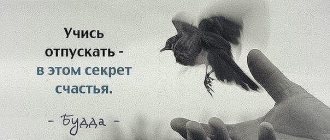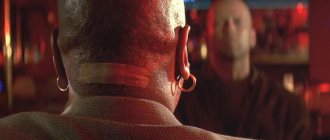About relationships
One evening, Konstantin Konstantinovich Rokossovsky called me and said that an order had been received from Moscow for my appointment to a new position.
— How long will it take you to get ready? - he asked.
“Two hours,” I answered.
“We won’t let you go like this,” said K.K. Rokossovsky, - after all, you are a veteran of the 7th division, and we will escort you as expected, this is the general desire of the command and political staff of the second brigade.
I was, of course, very touched.
A few days later, a dinner took place for the entire command and political staff of the 39th and 40th Cavalry Regiments, which was attended by the division command. I heard a lot of good, warm words addressed to me. They came from the heart and were remembered for a lifetime.
Georgy Konstantinovich Zhukov - born November 19, 1896, Strelkovka, Kaluga province, Russian Empire. Soviet commander. Marshal of the Soviet Union, four times Hero of the Soviet Union, holder of two Orders of Victory, and many other Soviet and foreign orders and medals. In the post-war years he received the popular nickname “Marshal of Victory”. Died June 18, 1974, Moscow, USSR.Quotes, aphorisms, sayings, phrases - Zhukov G.K.
- But the war, as always happens, confused all our hopes and calculations.
- No one claims to be the best until we build this “best” ourselves.
- In war, it seems to every general that the main blow falls on him.
- At first they decided to express gratitude, but then limited themselves to a reprimand.
- Any, even the most daring plans must be based on real possibilities.
- Personally, I am inclined to believe that there is no reason to doubt Hitler’s suicide.
- The greatness of the feat near Moscow lies in the fact that we did not surpass the Germans in strength.
- It has long been known that the city takes courage. But it turns out that cities are also tricky.
- I lived my life with the consciousness that I was benefiting the people, and this is the main thing for any life.
- I admit, working at a desk was not easy for me, a military man.
- Burn out with a hot iron the irresponsible attitude towards saving people, no matter who it comes from.
- Stalin had many bad traits, but no one can blame him for the carelessness of the state penny.
- Heroism is the decisive remedy. But all heroism must be smart, not reckless. Otherwise, this is stupidity, if not worse.
- For me, the main thing was serving the Motherland, my people. And with a clear conscience I can say: I did everything to fulfill this duty.
- The elementary truth obliges: before throwing tanks, you need to suppress the fire system, and then only throw tanks. But you do the opposite.
- After Stalingrad, the army became like a hardened blade, capable of crushing any force. The battle on the Kursk Bulge perfectly confirmed this.
- The days of my greatest joys coincided with the joys of the Fatherland. The anxiety of the Motherland, its losses and sorrows have always worried me more than personal ones.
- Was J.V. Stalin really an outstanding military thinker? Of course not. All this was heaped up to please J.V. Stalin, which he himself contributed to.
- Time has no power over the greatness of everything that we experienced during the war, and the people, who once experienced great trials, will continue to draw strength from this victory.
- War is war, there cannot but be losses, and these losses can be large, especially when we are dealing with such a serious and fierce enemy.
- The big disadvantage for the Supreme Commander (Stalin) was that during the war he personally never visited the troops at the fronts and did not see the combat operations of the troops with his own eyes.
- There is no sight more painful than the sight of the destroyed fruits of labor into which he invested his strength, talent, and love for his native land. There is no smell more bitter than the burning of ashes.
- There were often cases when I.V. Stalin, without informing the General Staff, gave his instructions to the commanders, as a result of which serious organizational discrepancies occurred.
- The war required many sacrifices from all the peoples of the world. I am happy that I was born a Russian person. And he shared with his people in the last war the bitterness of many losses and the happiness of Victory.
- The defeat of the enemy in an operation, battle or battle is the work of the entire team, a common cause. Anyone who tries to rise above the collective, or one who wants to elevate someone, is contrary to the truth.
- Hitler's fascism turned German youth, who had not yet reached adulthood, into murderers. Without a drop of regret, they shot and burned living people in ovens, regardless of age and gender.
- We fought fascism when almost all of Europe was defeated by it. We remained the last hope for many people and nations. The world held its breath in 1941: will we survive or will the Nazis take over?
- The English General A.W. Knox then wrote to his government that it was possible to defeat the million-strong Bolshevik army, but when 150 million Russians do not want whites, but want reds, there is no point in helping the whites.
- Now, after everything we have experienced, critically reflecting on the past, we can say that the country’s leadership mistakenly neglected our demands for urgent measures that should have been taken immediately after the war with Finland.
- During the period of the most fierce fighting, I had to sleep no more than two hours a day. When the turning point in the battle came, I fell asleep so soundly that they could not wake me up. Stalin called twice and was told: “Zhukov is sleeping, we can’t wake him up.”
- I was reproached for being too demanding, which I considered an indispensable quality of a Bolshevik commander. Looking back, I think that sometimes I was really too demanding and was not always restrained and tolerant of the misdeeds of my subordinates.
- As you know, the army is an instrument of war; it exists for armed struggle against the enemies of the Motherland, and for this struggle it, first of all, must be prepared tactically. Otherwise, she will be forced to finish her studies during the battles, while suffering unnecessary losses.
- We must pay tribute to I.V. Stalin: when the war began, he did not blame anyone for the lack of the required number of the latest tanks, aircraft and other military equipment, since he knew that he and his inner circle were primarily to blame for the unresolved issues .
- Remembering the joint work with the officers of the old army, I must say that for the most part they were honest, conscientious and devoted sons of our people to the Motherland. When they had to give their lives in battles with enemies, they did so without flinching, with dignity and combat valor.
- There is nothing easier than, when all the consequences are already known, to return to the beginning of events and give various kinds of assessments. And there is nothing more difficult than understanding the entire set of issues, the entire confrontation of forces, the opposition of many opinions, information and facts directly at a given historical moment.
- I remember the beginning of the First World War for the pogrom of foreign shops in Moscow. Secret police agents and Black Hundreds, under the guise of patriotic slogans, organized a pogrom of German and Austrian firms. Many people were involved in this, simply seeking to profit from something. But since these people could not read signs in foreign languages, they also destroyed other foreign companies - French, English.
- Criminal attacks continue in the same place, and as a result of the stupidity and indiscipline of the would-be organizers, people are paying with thousands of lives without bringing any benefit to the Motherland. If you want to be retained in your positions, I demand: Stop criminal attacks on populated areas; Stop frontal attacks on heights with good shelling; Advance only through ravines, forests and areas with little fire.
- Until 1936, that is, before the mass arrests of major military figures in the country and commanders of senior formations, both theoretically and practically, serious attention was paid to the operational-strategic interaction of the branches of the armed forces; the most important problematic issues were considered and resolved, and in the period 1936-1939. this most important strategic work was at a standstill; simply put, there was no one to lead it, since almost everything seriously thoughtful suffered a tragic fate. This most important government work was somewhat revived after the Soviet-Finnish war, in 1940 and early 1941, that is, immediately before the sudden attack of Nazi Germany on the Soviet Union.
Aphorisms from Georgy Konstantinovich Zhukov:
*** J.V. Stalin made a great personal contribution to the cause of winning victory over Nazi Germany and its allies... The Supreme Commander-in-Chief skillfully handled his responsibilities at this high post.
(Stalin)
*** In leading the armed struggle as a whole, he was helped by his natural intelligence, experience in political leadership, rich intuition, and broad awareness. He knew how to find the main link in a strategic situation and, seizing on it, outline ways to counter the enemy and successfully carry out one or another offensive operation.
(Stalin)
*** The merit of I.V. Stalin here lies in the fact that he quickly and correctly accepted the advice of military experts, supplemented and developed them, and in a generalized form - in instructions, directives and manuals - immediately transferred them to the troops for practical guidance.
(Stalin)
*** I really liked the complete absence of formalism in the work of I.V. Stalin. Everything that he did through the Headquarters or the State Defense Committee was done in such a way that the decisions made by these high bodies began to be implemented immediately, and the progress of their implementation was strictly and steadily controlled personally by the Supreme Commander or, at his direction, by other leading persons or organizations. …AND. V. Stalin demanded daily reports on the state of affairs at the fronts. To go to report to the Supreme Commander-in-Chief, you had to be well prepared. It was impossible to show up, say, with maps on which there were at least some “blank spots”, to report approximate or even more exaggerated data. He did not tolerate answers at random; he demanded completeness and clarity.
(Stalin)
*** ...in supporting operations, creating strategic reserves, organizing the production of military equipment and, in general, in creating everything necessary for waging war, the Supreme Commander-in-Chief, frankly speaking, proved himself to be an outstanding organizer. And it would be unfair if we did not give him credit for this.
(Stalin)
*** Everyone looked up to I.V. Stalin, and he, despite his age, was always active and tireless.
(Stalin)
*** During the war, J.V. Stalin performed five duties... He worked intensely, 15-16 hours a day.
(Stalin)
*** Devoid of posturing, he won over his interlocutor with the simplicity of his communication. A free manner of conversation, the ability to clearly formulate a thought, a natural analytical mind, great erudition and a rare memory forced even very experienced and significant people to gather themselves internally and be on alert during a conversation with him.
(Stalin)
*** The Supreme Commander had some special instinct for weak points in reports or documents; he immediately found them and strictly punished them for unclear information. Possessing a tenacious memory, he remembered well what was said and did not miss an opportunity to rather sharply reprimand for what was forgotten. Therefore, we tried to prepare staff documents with all the care that we were then capable of.
(Stalin)
*** J.V. Stalin was a strong-willed man and, as they say, “not one of the cowardly dozen” ... he firmly ruled the country, armed struggle and international affairs. Even at the moment of mortal danger hanging over Moscow, when the enemy was at a distance of 25-30 kilometers from it, I.V. Stalin did not leave his post, was at Headquarters in Moscow and behaved as befits the Supreme Commander-in-Chief.
(Stalin)
*** J.V. Stalin, even before the war, dealt a lot with issues of weapons and military equipment. He often called in the designers of the main types of weapons and asked them in detail about the details of the design of these types of military equipment here and abroad. We must give him his due, he had a good understanding of the quality of the main types of weapons... Without the approval of I.V. Stalin... not a single model of weapon was accepted or removed... it should be admitted that such an order in many cases helped to quickly introduce one or another new one into production sample of military equipment.
(Stalin)
*** He read widely and was a widely knowledgeable person in a wide variety of areas of knowledge. His amazing efficiency and ability to quickly grasp the essence of a matter allowed him to view and assimilate in a day such a quantity of the most varied material that only an extraordinary person could do it. (about Stalin)
(Stalin)
***
The comparison is incorrect. Bonaparte lost the war, but I won.
(commander, war)
***
Time has no power over the greatness of everything we experienced during the war. And the people, who once experienced great trials, will continue to draw strength from this victory.
(time, greatness, victory, Russia)
***
The defeat of the enemy in an operation, battle or battle is the work of the entire team, a common cause. Anyone who tries to rise above the collective, or someone who wants to elevate someone, is contrary to the truth.
(victory)
***
For me, the main thing was serving the Motherland, my people. And with a clear conscience I can say: “I did everything to fulfill this duty.”
(service, duty)
***
The war required many sacrifices from all the peoples of the world. I am happy that I was born a Russian person. And he shared with his people in the last war the bitterness of many losses and the happiness of Victory.
(victory, Russians)
***
The English General Knox wrote to his government at that time that it was possible to defeat the million-strong Bolshevik army, but when 150 million Russians do not want whites, but want reds, there is no point in helping the whites.
***
No one claims to be the best until we build this “best” ourselves.
***
There is nothing easier than, when all the consequences are already known, to return to the beginning of events and give various kinds of assessments. And there is nothing more difficult than understanding the entire set of issues, the entire confrontation of forces, the opposition of many opinions, information and facts directly at a given historical moment.







